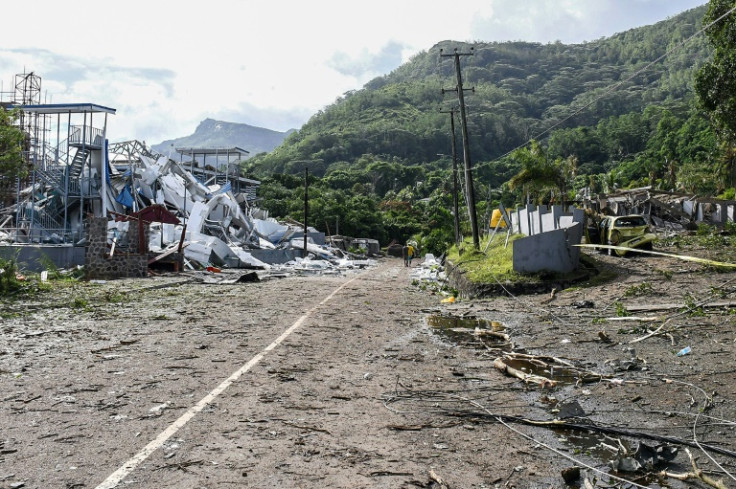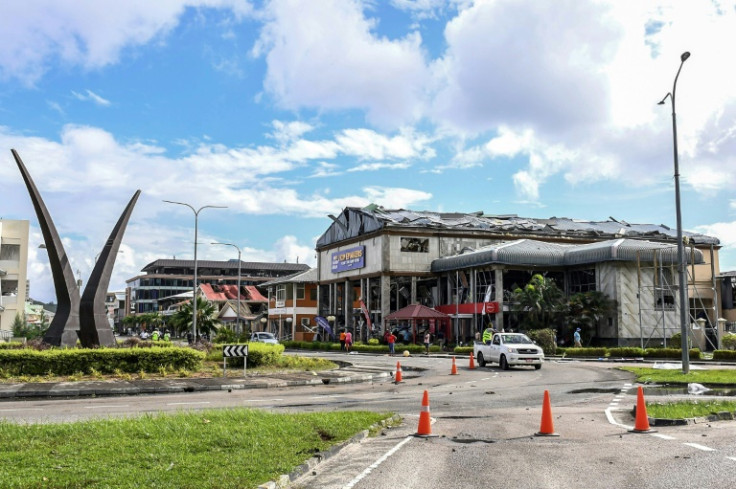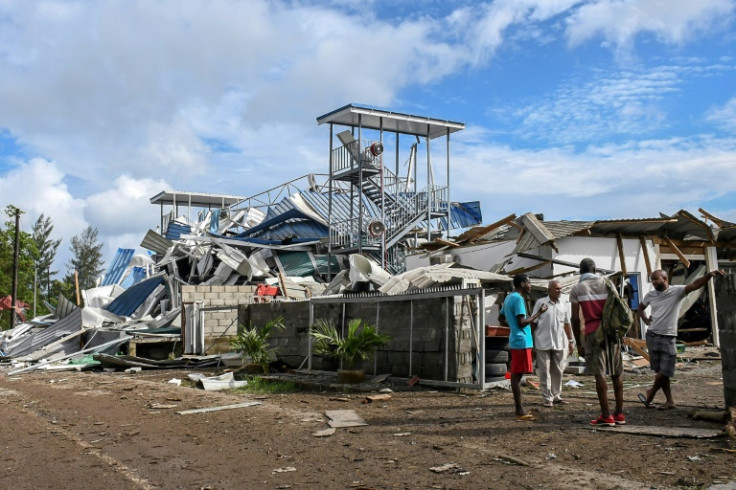
A huge blast at an explosives depot in Seychelles on Thursday injured 66 people and brought down buildings, prompting the country's "shocked" president to declare a state of emergency.
The archipelago -- famous for its idyllic white beaches and high-end tourism -- is also grappling with flooding and landslides due to heavy rainfall which have claimed two lives, President Wavel Ramkalawan said, ordering citizens to stay at home.
The blast happened in the Providence industrial area in Mahe, the largest island in the Indian Ocean nation, causing huge damage at the site and to surrounding areas, the presidency said in a statement.
"Following an explosion at the CCCL explosives store that has caused massive damage... and major destruction caused by flooding due to heavy rains, the president has declared a State of Emergency for today the 7th December," the presidency said.
"All schools will be closed. Only workers in the essential services and persons travelling will be allowed free movement. This is to allow the emergency services to carry out essential work," the statement added.
"I was shocked when I arrived early in the morning. The police and the army (have taken) control of the area," Ramkalawan told a press briefing.
"Sixty-six people have been admitted to hospital," he said.
Footage broadcast on television showed broken glass and sheet metal debris scattered on site.
"Many people are in a state of shock, and we strive to provide them with psychological support," Ramkalawan said, adding that the blast could have resulted in many more casualties had it occurred during the daytime.
"Seychelles learned a lesson today and we must do something to change the situation," he said, vowing to re-assess storage standards for explosives in the country.
Police have launched an investigation into the causes of the explosion.
"In the Niol region (of Mahe), there was a landslide... two people were discovered dead," Ramkalawan told reporters.
The international airport is still operational and ferry services between islands are running for visitors, the tourism-dependent country said on its official Visit Seychelles account on X, formerly Twitter.
The Seychelles Broadcasting Corporation (SBC) reported that heavy rains on Wednesday night caused serious damage in several areas of Mahe.
Photos on SBC's official Facebook account showed collapsed houses, fallen trees, landslides and severe cracks along the surface of roads in Mahe.
A former British colony, the Seychelles is made up of 115 islands and according to 2021 World Bank data is the richest African country as measured by per capita gross domestic product, with tourism and fishing the biggest contributors to the economy.
However, around 40 percent of the country's 98,000 inhabitants live in poverty.
Mahe, where the capital Victoria is located, is home to 87 percent of the country's population.
Parts of Africa -- particularly Kenya, Somalia and Ethiopia -- have experienced heavier rainfall than usual since October, linked to the El Nino weather phenomenon.
According to the UN, the situation has been exacerbated by the combined impact of El Nino and the Indian Ocean Dipole -- a climate system defined by the difference in sea surface temperature between western and eastern areas of the ocean.
El Nino is typically associated with increased heat worldwide, as well as drought in some parts of the world and heavy rains elsewhere.
El Nino last occurred in 2018-2019 and was followed by an exceptionally long La Nina -- El Nino's cooling opposite -- which ended earlier this year.









